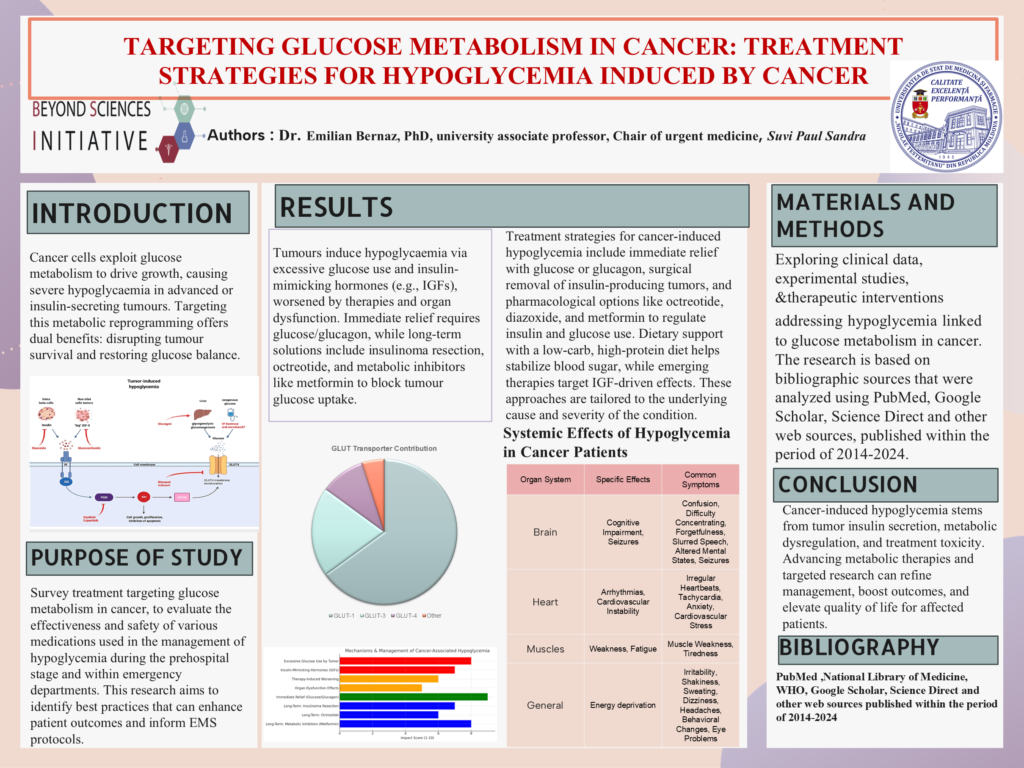Sandra Suvi Paul
Moldova
TARGETING GLUCOSE METABOLISM IN CANCER: TREATMENT STRATEGIES FOR HYPOGLYCEMIA INDUCED BY CANCER
Sandra Suvi Paul[1],Emilian Bernaz[2],Kuzhipurayidathil Vijayakumar Anaswara[1]
1. Student,Nicolae Testemi?anu State University of Medicine and Pharmacy,Moldova
2.Department of Medical Emergencies, USMF “N. Testemi?anu”, Moldova
Abstract
Background
Hypoglycemia and cancer are associated through tumor hormones, altered metabolism, and treatment side effects. Supervision of hypoglycemia is essential to improving outcomes and quality of life for cancer patients.
Methods
Exploring clinical data, experimental studies, and therapeutic interventions addressing hypoglycemia linked to glucose metabolism in cancer. The research is based on bibiliographic sources that were analyzed using PubMed, Google Scholar, Science Direct and other web sources, published within the period of 2014-2024.
Results
Tumor metabolism significantly contributes to hypoglycemia, especially in large or a upsurge tumors with rise in glucose demands exceeding the body’s capacity. Paraneoplastic syndromes, where tumors release insulin-mimicking hormones like insulin-like growth factors (IGFs), further disturb glucose regulation. Chemotherapy and other cancer therapies, particularly in patients with weakened liver or pancreatic function, are also linked to hypoglycemia. Immediate treatment includes glucagon injections or glucose infusions but is not curative. Insulin secretion by tumors, such as insulinomas can be managed through surgery or medications like octreotide. Targeted therapies and metabolic treatments, such as metformin, capable in reducing tumor-driven glucose consumption and addressing hypoglycemia effectively.
Conclusions
Cancer-induced hypoglycemia is a complex syndrome caused by insulin production, tumor metabolism, and adverse drug effects. Promoting research on tumor metabolism, metabolic therapies, and innovative treatment initiate holds the potential to improve management strategies, strengthen patient outcomes, and significantly enhances the quality of life for hypoglycemic cancer patients.


Leave A Comment